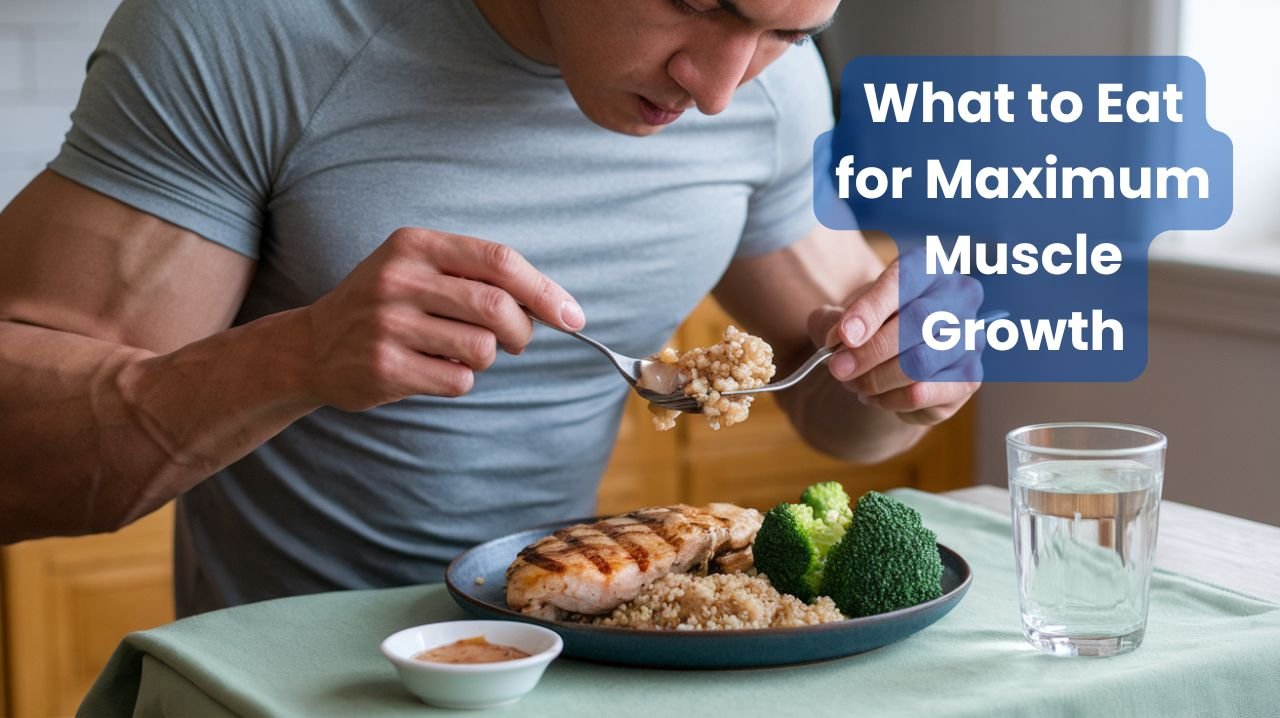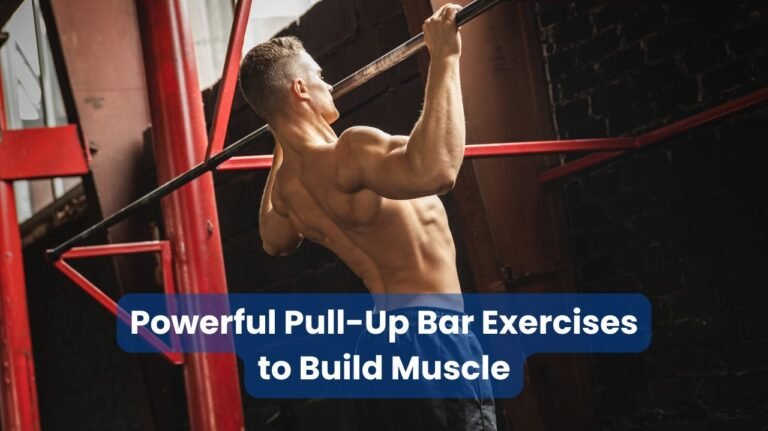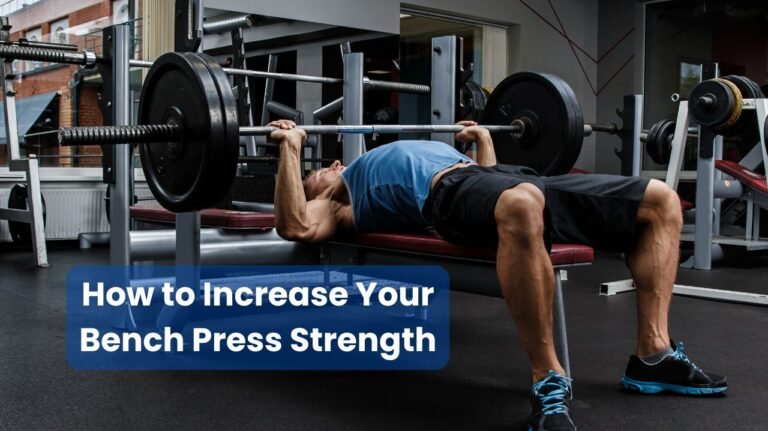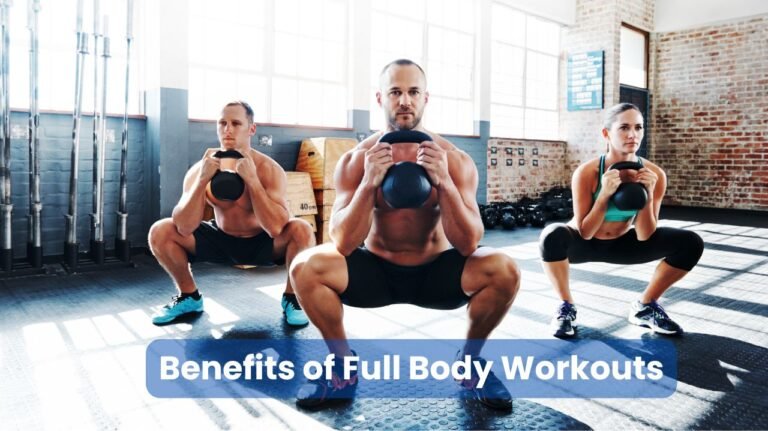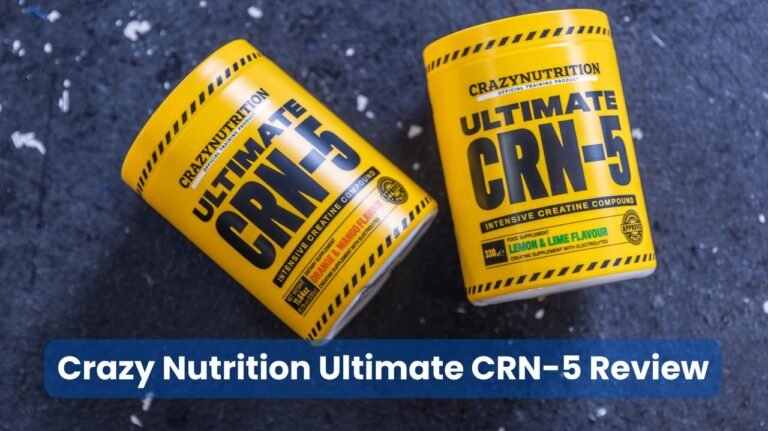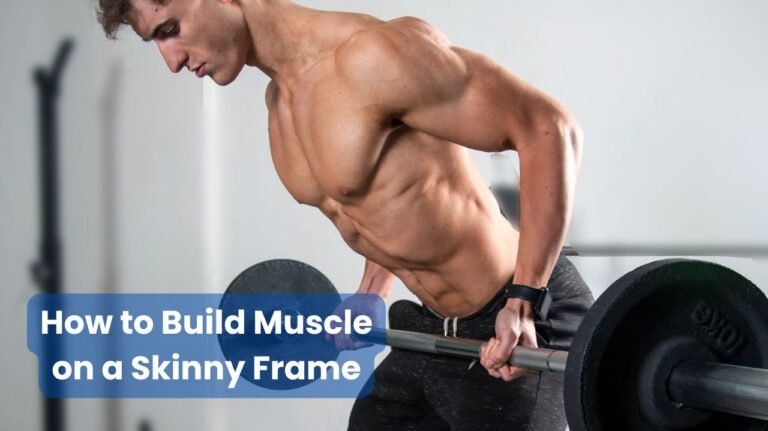Bodybuilding Nutrition: What to Eat for Maximum Muscle Growth
Bodybuilding is more than just lifting weights and hitting the gym. It’s a lifestyle that requires dedication, discipline, and a well-planned nutrition strategy.
For those looking to maximize muscle growth, understanding what to eat and when to eat it is crucial.
This article delves into the world of bodybuilding nutrition, offering insights and practical advice for anyone looking to build serious muscle.
👉 Boost in Focus and Energy to Help Increase Pumps and Performance
👉 Increase Gains, Promote Muscle Growth and Boost Energy
👉 Powerful Muscle Growth, Increased Blood Flow, and Enhanced Pumps
👉 Bulk-Up, Increase Gains, And Improve Recovery
The Importance of Nutrition in Bodybuilding
Before diving into specific nutritional strategies, it’s essential to understand why proper nutrition is so vital for bodybuilders. The food we eat provides the building blocks for muscle growth and repair. Without adequate nutrition, even the most intense workout regimens will fall short of producing the desired results.
Key reasons why nutrition matters in bodybuilding:
- Muscle growth: Proper nutrients are essential for muscle protein synthesis
- Energy: The right foods fuel workouts and aid in recovery
- Hormonal balance: Nutrition affects testosterone and other muscle-building hormones
- Fat loss: A well-planned diet helps maintain a lean physique while building muscle
Macronutrients: The Foundation of Bodybuilding Nutrition
Macronutrients – proteins, carbohydrates, and fats – form the cornerstone of any bodybuilding diet. Each plays a crucial role in muscle growth and overall performance.
Protein: The Muscle Builder
Protein is often considered the most important macronutrient for bodybuilders. It provides the amino acids necessary for muscle repair and growth.
Key points about protein:
- Recommended intake: 1.6-2.2 grams per kilogram of body weight daily
- Best sources: Lean meats, fish, eggs, dairy, and plant-based options like legumes and tofu
- Timing: Spread protein intake throughout the day, including before and after workouts
Carbohydrates: The Energy Source
While often vilified in popular diets, carbohydrates are essential for bodybuilders. They provide the energy needed for intense workouts and help with muscle recovery.
Important aspects of carbohydrates:
- Recommended intake: 4-7 grams per kilogram of body weight daily
- Best sources: Whole grains, fruits, vegetables, and legumes
- Timing: Focus on complex carbs throughout the day, with simple carbs around workouts
Fats: The Hormone Regulator
Healthy fats are crucial for hormone production, including testosterone, which is vital for muscle growth.
Key points about fats:
- Recommended intake: 0.5-1.5 grams per kilogram of body weight daily
- Best sources: Nuts, seeds, avocados, olive oil, and fatty fish
- Timing: Spread fat intake throughout the day, avoiding large amounts close to workouts
Micronutrients: The Unsung Heroes
While macronutrients often steal the spotlight, micronutrients – vitamins and minerals – play equally important roles in muscle growth and overall health.
Essential micronutrients for bodybuilders:
- Vitamin D: Supports testosterone production and muscle function
- Zinc: Aids in protein synthesis and hormone production
- Magnesium: Helps with muscle and nerve function
- B vitamins: Essential for energy metabolism
- Antioxidants (Vitamins C and E): Support recovery and reduce inflammation
To ensure adequate micronutrient intake, bodybuilders should focus on eating a variety of colorful fruits and vegetables, along with nuts, seeds, and whole grains.
Meal Planning for Maximum Muscle Growth
Now that we understand the importance of various nutrients, let’s look at how to structure meals for optimal muscle growth.
Meal Frequency
The old bodybuilding adage of eating six small meals a day isn’t necessarily the only way to go. Recent research suggests that total daily intake is more important than meal frequency. However, spreading protein intake throughout the day can be beneficial for muscle protein synthesis.
A typical meal plan might look like this:
- Breakfast
- Mid-morning snack
- Lunch
- Post-workout meal
- Dinner
- Before-bed snack (optional, focusing on slow-digesting proteins)
Sample Meal Plan
Here’s an example of a day’s meals for a 180-pound (82 kg) bodybuilder:
| Meal | Foods | Macros (P/C/F in grams) |
|---|---|---|
| Breakfast | 3 whole eggs, 3 egg whites, 1 cup oatmeal, 1 banana | 40/60/20 |
| Snack | 1 scoop whey protein, 1 apple, 1 oz almonds | 30/20/10 |
| Lunch | 6 oz chicken breast, 1 cup brown rice, 1 cup broccoli, 1 tbsp olive oil | 40/50/15 |
| Post-workout | 1 scoop whey protein, 1 banana, 2 tbsp honey | 25/40/0 |
| Dinner | 6 oz salmon, 1 medium sweet potato, 2 cups mixed vegetables | 40/40/20 |
| Before bed | 1 cup low-fat cottage cheese, 1 tbsp almond butter | 30/10/10 |
This plan provides approximately 205g protein, 220g carbohydrates, and 75g fat, totaling around 2,375 calories. Adjust portions based on individual needs and goals.
Nutrient Timing: Maximizing the Anabolic Window
While overall daily intake is crucial, timing certain nutrients around workouts can help optimize muscle growth and recovery.
Pre-Workout Nutrition
Eating before a workout provides the energy needed for an intense training session. A meal containing both carbohydrates and protein, eaten 1-2 hours before training, can improve performance and reduce muscle breakdown.
Pre-workout meal ideas:
- Greek yogurt with berries and granola
- Whole grain toast with eggs and avocado
- Chicken and sweet potato
Intra-Workout Nutrition
For longer training sessions (over 90 minutes), consuming easily digestible carbohydrates and amino acids during the workout can help maintain energy levels and reduce muscle breakdown.
Intra-workout options:
- BCAA (Branched-Chain Amino Acids) supplement
- Sports drink with added amino acids
- Easily digestible carbohydrate gel
Post-Workout Nutrition
The post-workout meal is crucial for kickstarting the recovery process. Aim to consume a combination of fast-digesting proteins and carbohydrates within 30 minutes of finishing the workout.
Post-workout meal ideas:
- Whey protein shake with banana and honey
- Lean meat or fish with white rice
- Low-fat chocolate milk and a piece of fruit
Supplements for Bodybuilding
While whole foods should form the foundation of any bodybuilding diet, supplements can help fill nutritional gaps and enhance performance.
Essential supplements for bodybuilders:
- Whey protein: Fast-absorbing protein ideal for post-workout recovery
- Creatine monohydrate: Supports muscle strength and size
- Fish oil: Provides essential fatty acids and supports joint health
- Multivitamin: Ensures micronutrient needs are met
- Caffeine: Can enhance workout performance and fat burning
It’s important to note that supplements are just that – supplementary to a well-planned diet. They should not replace whole foods or be relied upon as a primary source of nutrition.
Hydration: The Often Overlooked Aspect
Proper hydration is crucial for muscle growth and overall performance. Dehydration can lead to decreased strength, reduced endurance, and impaired recovery.
Tips for staying hydrated:
- Drink water throughout the day, aiming for at least 3-4 liters daily
- Increase water intake during hot weather or intense training
- Consider electrolyte drinks for very long or intense training sessions
- Monitor urine color – it should be pale yellow to clear
Common Nutrition Mistakes to Avoid
Even experienced bodybuilders can fall prey to nutritional pitfalls. Here are some common mistakes to avoid:
- Overemphasis on protein: While important, excessive protein intake doesn’t lead to more muscle growth and can strain the kidneys
- Neglecting carbohydrates: Carbs are essential for energy and recovery
- Avoiding fats: Healthy fats are crucial for hormone production
- Relying too heavily on supplements: Whole foods should always be the priority
- Not eating enough: Undereating can hinder muscle growth and recovery
- Ignoring micronutrients: Vitamins and minerals are essential for overall health and performance
Adjusting Nutrition for Cutting and Bulking
Bodybuilders often cycle between periods of muscle gain (bulking) and fat loss (cutting). Nutritional needs vary depending on the current goal.
Bulking
During a bulking phase, the goal is to consume more calories than are burned to support muscle growth. This usually involves increasing carbohydrate and overall calorie intake while maintaining high protein consumption.
Tips for bulking:
- Increase calorie intake gradually, aiming for 300-500 calories above maintenance
- Focus on nutrient-dense, whole foods to support health and performance
- Monitor progress and adjust intake as needed to avoid excessive fat gain
Cutting
Cutting involves reducing calorie intake to lose body fat while preserving muscle mass. This typically means reducing carbohydrate and fat intake while maintaining high protein consumption.
Tips for cutting:
- Reduce calorie intake gradually, aiming for 300-500 calories below maintenance
- Keep protein intake high to preserve muscle mass
- Focus on high-volume, low-calorie foods like vegetables to maintain fullness
- Consider intermittent fasting or carb cycling as potential strategies
👉 Pack On Muscle Mass and Get Bigger and Stronger
👉 Burn Fat and Get Seriously Ripped
👉 Get Explosive Strength and Maximum Stamina
👉 Become A Gym Beast With Legal SARMs Alternatives
Conclusion: The Path to Maximum Muscle Growth
Bodybuilding nutrition is a complex but rewarding aspect of the muscle-building journey. By focusing on consuming adequate amounts of high-quality proteins, carbohydrates, and fats, along with essential micronutrients, bodybuilders can create the optimal environment for muscle growth and recovery.
Remember, there’s no one-size-fits-all approach to nutrition. It’s essential to experiment with different strategies and listen to your body to find what works best for you. Consistency, patience, and a willingness to adjust your approach as needed are key to achieving your bodybuilding goals.
With the right nutrition plan in place, combined with a solid training regimen and adequate rest, you’ll be well on your way to building the physique of your dreams. Happy lifting!

